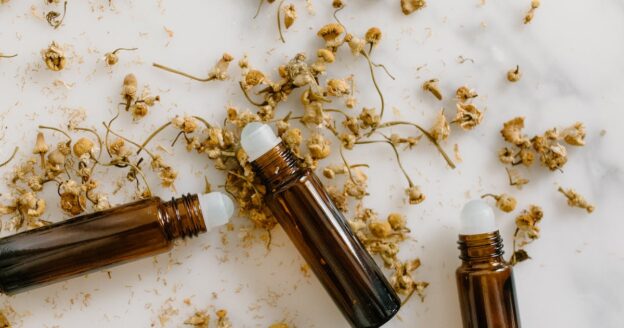Stress and anxiety can happen at any time, but it’s a lot harder to deal when you’re far away from home, away from your support system and your safe space. Fortunately, many of the tools you use to cope can be brought with you on the go, ensuring that you have effective ways to calm yourself down when you need to.
To be prepared for unannounced stress and anxiety, we recommend assembling an on-the-go coping kit. This kit is a collection of items, objects and coping strategies that can help keep you calm and grounded when you’re experiencing stress or anxiety. Any tangible items in your kit should be small and easy to transport.
Below are some tips for putting together a coping kit for moments when you’re in need of immediate support.
Think About Where You Go
What places bring you stress or anxiety? Maybe you’re someone who likes to travel but you need something to relax you on the plane. Or maybe it’s commuting back and forth to work or visiting family over the weekends that make you anxious. By thinking about the places you go, you can determine what stimuli you may be facing and what coping skills will be appropriate.
Consider the Challenges You Face
We all struggle with different things. Think about the challenges you face, such as feeling claustrophobic in crowded spaces. When you define your triggers, you can pack the appropriate items in your kit to help you cope appropriately. For example, people who get nervous in crowded spaces might pack essential oils, fidgets and chewing gum.
Pick Items that Engage the Senses
Try to pick items that will engage all five senses. Different sounds, tastes, smells, textures and visuals can bring you a sense of calm and provide relief when you’re feeling stressed. Think about some of the objects that have happy memories for you, such as a lavender candle or a picture of someone special. Avoid any sensory inputs that make you feel uncomfortable.
Practice Using the Box
When you assemble your on-the-go coping toolbox, make sure to get into the habit of using it! In fact, you’ll want to try it out when you are feeling relaxed so that you can get comfortable using the items in the box. Take a moment to see how the items in the kit make you feel and how you might use them when you’re feeling upset.
What to Put in Your Box: Feel-Good Items and Other Distractions
Start with a shoebox, small container or even a drawstring bag. Anything will do! Then pick the items that you want to put into the box. Here are some ideas:
- Smells. What smells make you feel calm? Many people like the smell of lavender, peppermint, eucalyptus or lemongrass. Small candles, rollerballs, tea bags, essential oils, etc. are easy to pack in your box.
- Tastes. Are there any tastes that trigger happy memories? Treats like hard candies, chewing gum, flavored lip balm and bottles of water can help keep you grounded in times of stress.
- Textures. Different textures can provide relief when stressed. Fortunately, fidget toys are very popular these days, so you have plenty to choose from: fidget spinners, bubble poppers, clicking pens, Rubik’s cubes, squishies or even a soft stuffed animal.
- Sounds. Too many sounds at once can be overstimulating. Keep yourself calm with earplugs or noise-canceling headphones, and/or make a playlist of your favorite songs.
- Visuals. Images can be a powerful tool, helping you focus on what makes you happy. Print off images of your favorite memories or create a folder or slideshow on your phone with your favorite images.
Don’t forget that some of the coping skills you use don’t need to be packed into a box! Taking deep breaths, humming your favorite song, meditating, etc. are all strategies that you can use at the moment. You can also download a mindfulness app, create a playlist with your favorite songs or podcast episodes and write down positive affirmations to keep with you.
Empowerment in Recovery
Having a variety of items, objects and tools to help you cope empowers you to navigate difficult situations and manage your emotions appropriately. These coping kits are also a great tool for individuals in recovery, as they can help prevent relapse. To seek support for a mental health or substance use disorder, contact Awakenings Treatment Center today.










